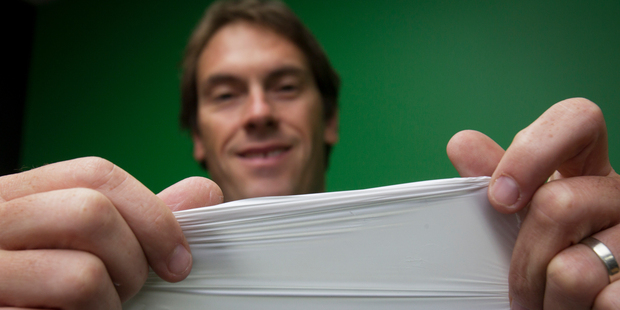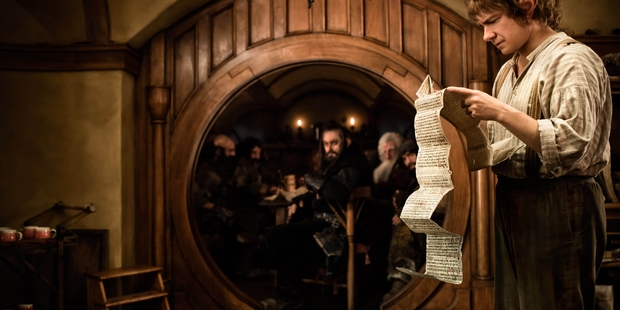Hoki sparks nano-fibre revolution
5:30 AM Thursday Nov 14, 2013

The Henderson-based Revolution Fibres is hardly a labour-intensive operation.
The firm - whose electro-spinning technology creates nano-fibres out of hoki skins, a by-catch of the fishery, which are used in everything from air filters to fishing rods and cosmetics - has a maximum of three staff on its factory floor at any one time.
Another three staff are focused on research and development.
And Hosie said the products were "incredibly high-value and incredibly light".
"This is almost a weightless export," he said. "The amount of nano-fibre you can fit into a shipping container is quite ridiculous."
Revolution's technology has its origins in Crown institute Plant & Food Research, but it was Hosie's firm that made it a commercial reality.
The electro-spinning process basically works like this: The hoki skins are ground into a powder, which is then turned into a liquid solution and zapped with around 50,000 volts of electricity, producing the nano-fibres that are about 1000 times thinner than a human hair.
Revolution has been supplying nano-fibre air filters to New Zealand home ventilation system manufacturer HRV since 2011.
Despite New Zealand's clean and green reputation, Hosie claimed there were plenty of nasties in the air that Kiwis should be worried about.
"We're perceived as clean and green but we do have a lot of particles in our air," he said. "We have huge pollen counts and a lot of allergies like asthma."
Revolution is also supplying its products to fishing rod manufacturer Kilwell, Hosie said.
He said the Rotorua-based company used a fine layer of nano-fibre, embedded inside resin, to strengthen the rods.
The company is also gaining traction in producing cosmetic products.
It's developed a face patch that uses collagen fibre to apply plant extracts with "rejuvenation properties" to the skin.
"When you buy a cream, 90 per cent is the cream and 10 per cent is the goodness," Hosie said. "We've made a product that is 100 per cent active ingredients, all the stuff that is good for the skin, and nothing else."
Hosie said the face patch product, which is being marketed by a partner he could not disclose, would soon hit the market in China, South Korea and Japan.
Revolution was on track to pull in revenue of $2 million this year, he added.
The company, owned by its founders, has funded its development without having to take early stage venture capital or angel investment.
"We've gone through the valley of death and popped out the other side," Hosie said. "We're a profitable business ... and we could be a lot more profitable if we didn't invest so much of our potential profits back into the business."
He said the company would like to take investment from business partners it was developing products with.
"I think we'd be looking for capability investment - investments to meet market demand, which is the right reason to invest," Hosie said.
"The ideal situation would be our customers becoming our partners."


